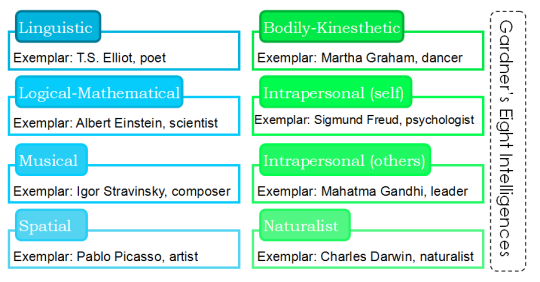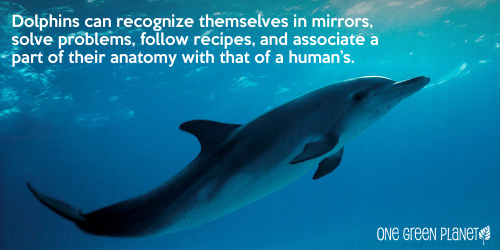#intelligence
I’ve always loved the poem that Count Olaf recites to Kit just before he dies in The End, and by love of course, I mean I bawl my eyes out every single time I read it. He only reads the last stanza aloud, but here is the poem in its entirety:
They fuck you up, your mum and dad.
They may not mean to, but they do.
They fill you with the faults they had
And add some extra, just for you.
But they were fucked up in their turn
By fools in old-style hats and coats,
Who half the time were soppy-stern
And half at one another’s throats.
Man hands on misery to man.
It deepens like a coastal shelf.
Get out as early as you can,
And don’t have any kids yourself.
- Philip Larkin
Obviously, we can understand why Handler didn’t want to include explicit profanity in a book written for middle grade children, but I really do love the fact that the first two stanzas are left unsaid and the reader, if interested actually has to go and research them and find them out for themself, because that is one of the points of the poem and one of the points of the series - that people don’t tell you the whole story and that things are always much more complicated than they seem - even things that seem like black and white morality are always so much more complicated.
Yes, your parents mess you up and ruin you, just like the Baudelaires find out in The Penultimate Peril and The End that their parents were not perfect and possibly even are the reason why all this horror has been happening to them, but the story is more complicated than that and the Baudelaires (and the readers) are left for themselves whether or not they want to leave it be - just read the last verse - or they want to explore for themselves and maybe not like what they find.
Ever since The Austere Academy, the Baudelaires have been told that the VFD was a noble organization and filled with volunteers that will help them, but the noble side of the VFD also produced lots of people who did horrible things: the Baudelaire parents, Jerome Squalor, Lemony and Kit Snicket. The VFD taught them to follow blindly and so they blindly followed and they accepted authority at its face value and as a result they became corrupted by those in power.
Ultimately, this poem is about the cycle of abuse and misery in this world. “Man hands misery onto man”, we inherit our trauma from each other and we create our own demons out of the demons that have been fed to us, and we tell ourselves that we won’t do the same, but we indubitably will. To be human is to be messed up, and the kindest thing you can do in life is to not bring any more people into the world.
But particularly interesting to me is Count Olaf’s recitation of the poem. Because in the passage, he’s not reciting it to to the Baudelaires, he’s reciting it to Kit, as she gives birth on a coastal shelf. On a personal, theoretical level, I have always used this as evidence that Beatrice II was Count Olaf’s biological daughter, but also it acts as a symbol of Count Olaf’s journey - he is an awful, awful man who has hurt the children put into his care time and time again and probably messed them up on some psychological level for the rest of their lives, but he too was messed up and turned out by the world by the people who raised and shaped him, and ultimately the root of evil goes back much further than we’d like to think. We’d like to think that Count Olaf is just a cruel, uncaring man who acts the way he does out of cold-blood, but the world doesn’t work that way and he’s trying to tell Kit that he is the way he is because of his history, that he was jaded by the world young and he never managed to escape, and that he’s not actually a bad man. But even as he recites the poem, he laughs, because he recognizes his complicity in everything - he has handed down his misery as well and he has brought a child into the world against all warning. It is him recognizing his crimes and his irony, something the Baudelaires and Kit never thought he would do.
It also serves a larger purpose in that Count Olaf has always been described as unintelligent and dismissive of intellect and reading and the orphans have always maintained that if a person is well-read they must be a good person and that reading is what makes people good. Because Count Olaf is not good, and yet he is able to recite an obscure poem - written by a librarian, no less - in the blink of an eye. Throughout the entirety of The End, Count Olaf has defied his stereotype by proving to be intelligent and capable of empathy and eschewing everything we thought we knew about him. Things are always more complicated than they seem and go back further than you’d like to think, and the world itself is a messed up place - a conundrum of esoterica, if you will - and defies any pithy explanation you might try and force upon it.
To be intelligent is not to be able to solve every riddle. It’s understanding what you want, and which riddles you need to crack to get it.
ISN’T CAUSE THEY’’RE BLACK THAT THEY’RE FOR YOU⛔✊
#AfroChat Are you sick? Are you suffering from a mentally transmitted disease? Why are we so quick to condemn our own, yet so forgiving of those who have kept us systematically
disenfranchised? Shoutout to THMLF for inspiring the words in this video ’ @ericaleshai
#explore #video #blm #black
#women #men #blacklivesmatter #love #lifestyle #intelligence #gorgeous #fashion #beauty #nails #hair #makeup #clothes #classy #afro #boxbraids
https://www.instagram.com/p/CGgpqjwAjal/?igshid=1wcqaifighxng
Daily Picture Assignment #158
I hardly ever wear bras when I’m at home or when I go out, and now I’ve stopped wearing bras to work, too. Pretty sure most of the people at work have seen my nipples like this :3
One of my many positive traits is that I’m hella smart.
I’ve always done well at school and on tests (I went to a school known for being challenging and full of intelligent people for undergrad, and for grad school, I went to another institution with the same sort of reputation, and I got good grades at both), so I know I have the kind of intelligence that makes that possible. I’m also good at problem-solving, both for school/work and in life more generally, and when I really get into something, I often get super focused on figuring it out and stick with it until I solve it.
I also know I’m smart because of other people. I look at who I spend time with, and they’re all quick, intelligent people, and those very same people tell me that I’m also intelligent. If those sorts of people think that I’m smart, that’s pretty good evidence. On the other side of the equation, when I talk to people outside of my normal social circles (on OkCupid, for example), it really reminds me that I’m well above average in terms of being intelligent, thoughtful, and capable of meta-cognition.
This is one thing that makes me awesome that I really, truly believe. I know that I’m intelligent, and I have all sorts of reasons to think that is the case. This is one clever girl.
Post link


This is so perfect.
Rogues And Spyware: Pegasus Strikes In Spain
Rogues And Spyware: Pegasus Strikes In Spain
Weapons, lacking sentience and moral orientation, are there to be used by all. Once out, these creations can never be rebottled. Effective spyware, that most malicious of surveillance tools, is one such creation, available to entities and governments of all stripes. The targets are standard: dissidents, journalists, legislators, activists, even the odd jurist.
Pegasus spyware, the fiendishly…

What is Intelligence?
- Intelligence: mental quality consisting of the ability to learn from experience, solve problems, and use knowledge to adapt to new situations
- It’s a socially constructed concept that differs from culture to culture.
- Controversies on intelligence: 1. Whether it is one overall ability or many, and 2. Whether neuroscientists can locate and measure intelligence within the brain.
- Toreify intelligence is to treat it as though it were a real object, not an abstract concept.
- Most psychologists now define intelligence as the ability to learn from experience, solve problems, and adapt to new situations.
General Intelligence
- Factor Analysis: a statistical procedure that identifies clusters of related items (called factors) on a test; used to identify different dimensions of performance that underlie one’s total score
- Enables researchers to identify clusters of test items that measure a common ability
- Charles Spearman, who helped develop factor analysis, believed there is also a general intelligence, or, g.
- General intelligence (g): a general intelligence factor that according to Spearman and others underlies specific mental abilities and is therefore measured by every task on an intelligence test
- He proposed that general intelligence is linked to many clusters that can be analyzed by factor analysis
Contemporary Intelligence Theories
- Howard Gardner disputes the idea of one general intelligence

- He proposes 8 independent intelligences: and speculates about a ninth one- existential intelligence which is the ability to think about the question of life, death, and existence.
- Brain damage may diminish one type of ability but not others.
- Savant syndrome: a condition in which a person otherwise limited in mental ability has an exceptional specific skill, such as in computation or drawing.
- Robert Sternberg’s triarchic theory proposes only 3 intelligences: analytical, creative, and practical intelligences.
Emotional Intelligence
- Emotional intelligence: the ability to perceive, understand, manage, and use emotions
- Emotionally intelligent people are self-aware
- Four components:

- Gardner and others criticize the idea of emotional intelligence and question whether we stretch this idea of intelligence too far when we apply it to our emotions.
Intelligence and Creativity
- Creativity: the ability to produce novel and valuable ideas.
- It correlates somewhat with intelligence, but beyond a score of 120, that correlation dwindles.
- Expertise: A well-developed knowledge base.
- Imaginative Thinking: The ability to see things in novel ways.
- Adventuresome Personality: A personality that seeks new experiences rather than following the pack.
- Intrinsic Motivation: A motivation to be creative from within.
- A Creative Environment: A creative and supportive environment allows creativity to bloom.
Is Intelligence Neurologically Measurable?
- Recent Studies indicate some correlation (about +.40) between brain size and intelligence.
- As brain size decreases with age, scores on verbal intelligence tests also decrease.
- Studies of brain functions show that people who score high on intelligence tests perceive stimuli faster, retrieve information from memory quicker, and show faster brain response times.
The Origins of Intelligence Testing
- Intelligence testing: a measure for assessing an individual’s mental aptitudes and comparing them with those of others, using numerical scores
- Alfred Binet and his colleague Théodore Simon practiced a more modern form of intelligence testing by developing questions that would predict children’s future progress in the Paris school system.
- Binet and Simon, set out to recognize a child’s mental age
- Mental age: the chronological age that most typically corresponds to a given level of performance
- Example: a child who does well as the average 8 year old, is said to have a mental age of 8
- In the US, Lewis Terman adapted Binet’s test for American school children and named the test the Stanford-Binet Test.
- Extended the test’s range from teenagers to “superior adults”
- German psychologist William Stern created the “Intelligence quotient” or IQ

Modern Tests of Mental Abilities
- Aptitude tests are intended to predict your ability to learn a new skill
- Achievement tests are intended to reflect what you have already learned.
- Wechsler developed the Wechsler Adult Intelligence Scale (WAIS) and later the Wechsler Intelligence Scale for Children (WISC), an intelligence test for preschoolers.
- WAIS measures overall intelligence and 11 other aspects related to intelligence that are designed to assess clinical and educational problems.
- Separate scored for verbal comprehension, perceptual organization, working memory, and processing speed
- Differences in scores can alert for possible learning problems or brain disorders
Principles of Test Construction
- For a psychological test to be acceptable it must fulfill the following three criteria: Standardization, Reliability, and Validity
Standardization
- Standardizing a test involves administering the test to a representative sample of future test takers in order to establish a basis for meaningful comparison.
- Standardized tests establish a normal distribution of scores on a tested population in a bell-shaped pattern called the normal curve. (bell curve)
- Normal curve: the symmetrical bell-shaped curve that describes the distribution of many physical and psychological attributes. Most scores fall near the average, and fewer scores lie near the extremes
- In the past 60 years, intelligence scores have risen steadily by an average of 27 points. This phenomenon is known as the Flynn effect.
Reliability
- A test is reliable when it yields consistent results. To establish reliability researchers establish different procedures:
- To establish reliability researchers establish different procedures:
- Split-half Reliability: Dividing the test into two equal halves and assessing how consistent the scores are.
- Reliability using different tests: Using different forms of the test to measure consistency between them.
- Test-Retest Reliability: Using the same test on two occasions to measure consistency.
Validity
- Reliability of a test does not ensure validity.
- Validity of a test refers to what the test is supposed to measure or predict.
- Content Validity: Refers to the extent a test measures a particular behavior or trait.
- Predictive Validity: Refers to the function of a test in predicting a particular behavior or trait.
The Dynamics of Intelligence
- Intelligence scores become stable after about seven years of age
- A valid intelligence test divides two groups of people into two extremes: the mentally retarded (IQ 70) and individuals with high intelligence (IQ 135).
- Mentally retarded individuals required constant supervision a few decades ago, but with a supportive family environment and special education they can now care for themselves.
- Mental retardation: a condition of limited mental ability, indicated by an intelligence score of 70 or below and difficulty in adapting to the demands of life; varies from mild to profound
- Down syndrome: a condition of retardation and associated physical disorders caused by an extra chromosome in one’s genetic makeup
Genetic Influences
- Studies of twins, family members, and adopted children together support the idea that there is a significant genetic contribution to intelligence.
- Adopted children show a marginal correlation in verbal ability to their adopted parents.
- Fraternal twins raised together tend to show similarity in intelligence scores
- Identical twins raised apart show slightly less similarity in their intelligence scores
- Heritability of intelligence refers to the extent to which variation in intelligence test scores in a group of people being studied is attributable to genetic factors.
- Heritability never applies to an individual’s intelligence, but only to differences among people
Environmental Influences
- Early neglect from caregivers leads children to develop a lack of personal control over the environment, and it impoverishes their intelligence.
- Siblings within impoverished families have more similar intelligence scores which means that among the poor, environmental conditions can override genetic differences.
- Schooling is an experience that pays dividends, which is reflected in intelligence scores.
- High-quality preschool programs can provide at least a small boost to emotional intelligence, which leads to a better attitude towards learning and reduces school dropouts and criminality.
- Increased schooling correlates with higher intelligence scores.
Ethnic Similarities/Differences
- There is a test score gap between races
- However, these group differences are most likely due to environmental differences
- Asian students outperform North American students on math achievement and aptitude tests. But this may reflect conscientiousness more than competence as well as Asian students attending school 30% more days
- Today’s better prepared populations would outperform populations of the 1930s on intelligence tests
- White and black infants tend to score equally well on tests predicting future intelligence
- Different ethnic groups have experienced periods of remarkable achievement in different eras
Gender Similarities/Differences
- Females are better spellers; at the end of high school, only 30% of males spell better than the average female
- Females are verbally fluent and have large vocabularies
- Females are better at locating objects
- Females are more sensitive to touch, taste, and color
- Males outnumber females in counts of underachievement
- Males tend to talk later and stutter more often
- Males outperform females at math problem solving, but underperform at math computation. However, girls are less likely to be encouraged to pursue STEM fields, but as more girls get encouraged this gap is decreasing
- Females detect emotions more easily than men do
The Question of Bias
- Aptitude tests are necessarily biased in the sense that they are sensitive to performance differences caused by cultural differences.
- However, aptitude tests are not biased in the sense that they accurately predict performance of one group over the other.
- A stereotype threat is a self-confirming concern that one will be evaluated based on a negative stereotype.
- Stereotype threat explains why women do better in math tests when men aren’t in the room
Q: Why does my cat understand so many of the words that I say and I understand almost none of his vocalizations? A: There are a lot of factors at play here, so if you want a TLDR answer, you’re out of luck. First, some basics: Some cats are smarter than other cats. And there is a lot we don’t know about animals and cognition. And because cats in particular can’t be bribed reliably with food or a…

Continuing from Part 1, where I explained how we came to keep Stiles, and his relationships with our other cats… Kiki loves elephants and whales, and especially loves watching them if David Attenborough is narrating. She taught Stiles this love of whales, elephants, and David Attenborough from an early age. He’s particularly fond of baby elephants. He hops up on my desk to watch the You Tube…

Today is Stiles’s 2nd birthday. I’ve tried so many different times to figure out how to tell Stiles’s story, and how much he has come to mean to me. I touched on his story a bit when I wrote about his mother, Freya, and also when I wrote about Kagetora. But those mentions barely scratch the surface. I’m going to break this up into several parts since it would make a blog post that is way too…
Q&A How do cats see themselves and us?

Q: Do Cats Think They’re Humans? A: I’m not exactly sure where you got this idea, but it’s a rather simple answer: No. So why bring it up? Because there’s this ridiculous related notion that cats think that we are strange-looking cats. By that logic, they would have to think that their dog friends, bunny friends, and other animal friends are also strange-looking cats, but we know they don’t. Cats…
Where Do Domestic Cats Come From?
SciShow delved into some very interesting cat topics in the past few weeks, and I thought they were worth sharing.
how what???
I’m not good with the science of this or anything (someone who knows more feel free to add) but fish can play??? Fish can play like any other animal?? People saying it couldn’t breathe, do human kids not hold their breaths to go under water for fun? It’s just the opposite. Air is water, water is air. In the same vein as a kid being thrown up and into the pool and enjoying it, the fish is playing.
okay… as someone who studies marine biology I need to clarify something:
fish are unable to hold their breaths. They literally cannot take a deep breath like mammals do.
We have lungs that can take in a specific volume of air, fish have gills that work when they are ventilated enough. There are different kinds of gills, yes. Some fish have something called ‘operculum’ which is like a cap on top of the gills, helping to protect them and increasing the water circulation through the gills. Some fish DONT have this structure and need to swim in order to be able to breathe.
But the fact that they cannot hold their breaths doesnt mean that they cannot survive without water for a while - in fact, fish can (usually) survive being without water WAY LONGER than we could survive being without air.
I cannot tell if this fish does this for fun, but it sure looks like it. But I am not a behavioural biologist, so I can’t tell for sure.
It is abundantly clear the fish is a willing participant. It’s sort of arrogant to assume animals other than humans don’t play like humans.
Im not a behavior biologist either, but I have spent a lot of time around fish and ive spent a lot of time talking to and helping people that care for fish. (Former petstore fish guy that took his job too seriously)
That fish is having fun, and fish absolutely DO have fun!
There was a regular who came into the store I worked at a lot, and he kept several varieties of chichlids, a very smart, aggressive type of fish.
He would come in and talk to me about all the drama his fish get into. The different territorial disputes they were having, who had paired off with who, who broke up (yes chichlids are like this)
But he had a jack dempsey in particular that LOVED to chase his hand around the tank, not his wife’s hand, not his friend’s hand, it HAD to be him. He said that as soon as he entered the room where this fish’s tank was kept, the fish would TEAR UP the tank decor, knocking things over and acting a fool off his shits until this dude stuck his hand in there and let the fish chase it around back and forth.
He theorized that his fish learned that if he knocked the tank decor around, his owner would obviously have to stick his hand in to fix it. So when he wants to play “chase dad’s hand” thats naturally how he knows he can get the hand to appear. He wont do this behavior for anybody but this one guy and he won’t tear up the tank anymore after he had received sufficient “play time”, usually once a day when the guy got home from work. He likened it to having a dog that wont leave you alone till you play tug o war for a bit.
I had a betta that would spend twenty minutes at a time just swimming up to the waterfall of the filter, letting it push him down to the bottom of the tank, only to swim back up and do it again, like it was a fucking slide.
Bettas are weak swimmers, and they dislike strong currents, but this guy was using the filter current like a slide. Kinda like how we don’t really like getting thrown around, but we still enjoy rollercoasters.
I also have countless stories about goldfish trying to “give hugs” (re: shove themselves into their owners hands during tank maintenance)
My betta knows how to lie and he will only beg for food in front of those he knows have not fed him yet.
There is so much evidence I’ve seen that fish are waaaay smarter and affectionate than we think. They absolutely have fun and I honestly don’t think enough studies have been done on fish brains and fish behavior in general.
And honestly, having worked in a pet store, fish are generally treated like they don’t have brains by even the fish care brands that claim expert knowledge.
Its definitely worth noting that hard scientific evidence presenting that the very opposite is true would probably lead to more robust animal welfare laws that would definitely upset the aquatics industry. Food for thought.
I think you’re absolutely right on that last point. The misconception that fish are too thoughtless to have feelings facilitates the abhorrent conditions in which they are kept and ways they are treated by the industry.
I used to have a lovely tank, I think it was 50 gallons, and among other things I kept glass catfish. All the research at the time said they were hard to keep in captivity and prone to refusing to eat and starving themselves, and that they did not live long in captivity. But I was fascinated and had to try it. It took me about three days to realize none of the literature said a word about them being nocturnal. I started feeding them at night right before bed, and had zero problems getting them to eat, saw they were incredibly active as soon as the lights went off (I have exceptional night vision) and I kept them in excellent health for years. Exponentially beyond their captive life expectancy.
I think the commercial pet fish trade is abysmal in terms of actual working knowledge of fish.
Fish Intelligence (a link at which you will also learn there is a fish called the bony-eared assfish) has been studied on a pretty broad scale, actually and there’s a lot of scientific evidence to suggest that they are very smart creatures.

















